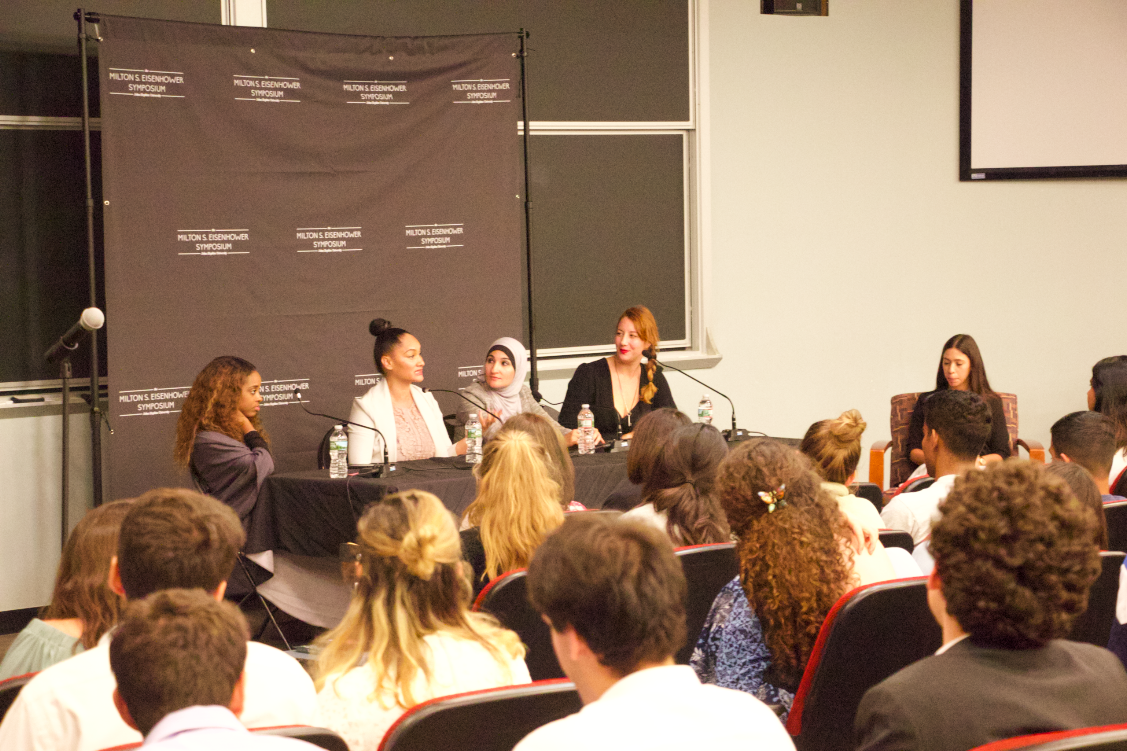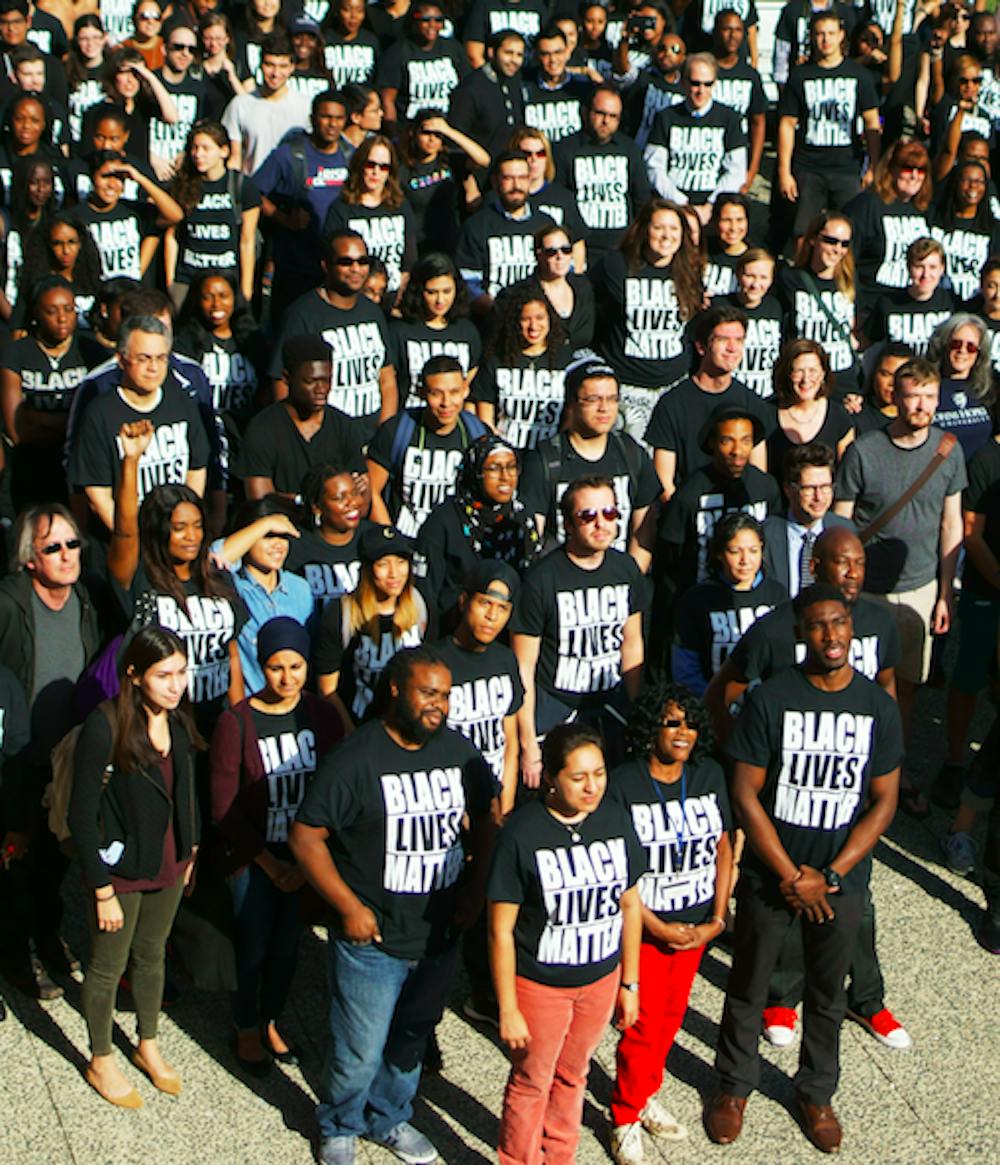Two words: #MeToo. One hashtag was all that was necessary for sexual assault survivors to show that film producer Harvey Weinstein was not an anomaly, that sexual assault has been normalized for far too long. The message spread not only across the U.S. but also internationally, and Weinstein is now just the first of many public figures charged with sexual assault in the past month whose careers have been irrevocably damaged.
Social media has proven itself to be an indispensable tool for activists. Facebook and Twitter helped catapult the Arab Spring. The Women’s March was organized through Facebook after the 2016 election. Black Lives Matter began with a hashtag. Viral video footage of police brutality against African Americans sparked outrage, reminding people that racism was most certainly not a thing of the past, that despite the end of slavery and segregation in the U.S., the road to justice is long, perhaps never-ending. #BlackLivesMatter.
This is an age when everything is so fast-paced, when trends erupt and fade at unprecedented speed. It’s an age when we are all so occupied with the endless minutia in our lives that we have little time to process our emotions. It is so easy for a hashtag to become just that — a hashtag, a fading trend. Just another #goodvibes, another #blessed.
Of course, that’s not the case with #MeToo. That’s more than just a casual hashtag. #MeToo carries significant weight. Posting the hashtag and sharing the stories that accompany it requires courage. But there are movements that have been very easy to contribute to without really doing anything except clogging up your friends’ newsfeeds.
Remember the Ice Bucket Challenge? That was fun, wasn’t it, the fight against ALS? How many of us knew what ALS was, or cared, after the trend faded? Sure, some of us did care and do care. Many of us know we should care.
But the #icebucketchallenge didn’t draw widespread attention because ALS was at the forefront of our minds. It went viral because we did it for the gram, because we loved seeing our friends getting doused in cold water. Some of us did donate money, but for many of us, that was more of a way to pat ourselves on the back. We did our part.
Perhaps this is because ALS does not have the same relevance to the majority of us as social justice issues do. Movements like Black Lives Matter are still going strong. But social media has made it too easy for us to feel like we are involved when that level of involvement is really superficial.
Through social media, you can easily contribute from your own home. You can help spread awareness and voice your opinions on issues you care about. But you can also get away with doing next to nothing. You can share a Vice video or a petition, you can litter your posts with hashtags and long diatribes against white supremacists and Trump. You can like a post and leave a snarky comment. That’s all very well, but it doesn’t make you an activist.

It’s very easy to give people the impression that you care. Post on social media regularly, and you have crafted a persona: the woke, progressive social activist. But too often, reality does not reflect that persona. “Dump Trump!” you may say.
Yet you don’t vote, you don’t take action, you don’t engage with the marginalized people you were presumably fighting for. All this time, you’ve been doing it for the likes, for the compliments, for the drama.
With social media also comes misinformation. The speed with which things go viral on social media only means spreading fake news has become so much easier. Nobody is there to fact check your friends’ posts. And yet so many of us rely on social media to get our news instead of supporting real journalism. How can we be responsible activists if we don’t bother to stay informed?
And how can we be responsible activists if we alienate those who do not share our views? Activism isn’t just about rallying the people who you know will readily support you. Yes, some people are impossible to sway. But there are others we can take the extra step to persuade. Cyberbullying, calling names and reinforcing stereotypes is counterproductive.
It’s a shame, because in spite of all its faults, social media has gotten us farther ahead than ever. It’s given us a broader range of different viewpoints, a close-up look into what is happening around the world.
In a few clicks, we can learn what marches we can participate in on the weekends, how our friends are getting involved, their personal experiences, how new legislation impacts them. And yes, depending on how we manage our newsfeed, we can get plenty of real news.
But it’s easy to forget. It’s easy to forget what the hashtags stand for, that there is a world outside social media where you can and should take action. It’s easier than ever for movements that should be perpetual to be reduced to short-lived trends.
The fight against sexual assault is growing stronger. But if we are not careful, it may lose traction. And we can’t let #MeToo fade. Not necessarily the hashtag but what it stands for. We must go on caring. We must keep fighting. We must hold ourselves and others accountable. Get off your cellphones and take action.





